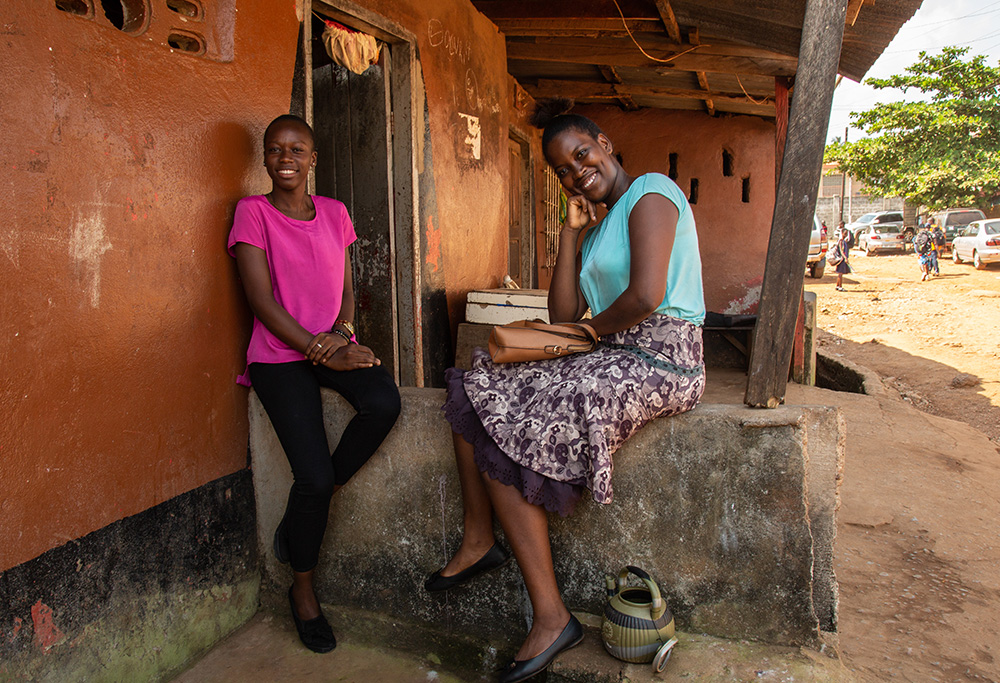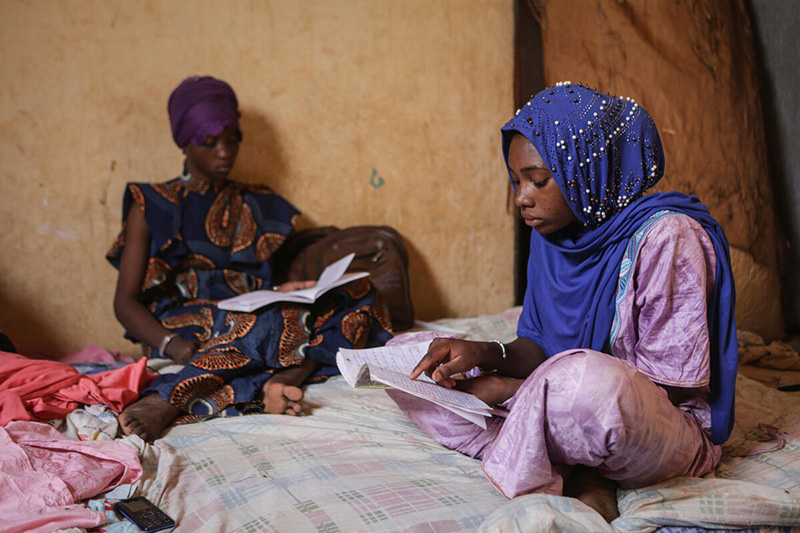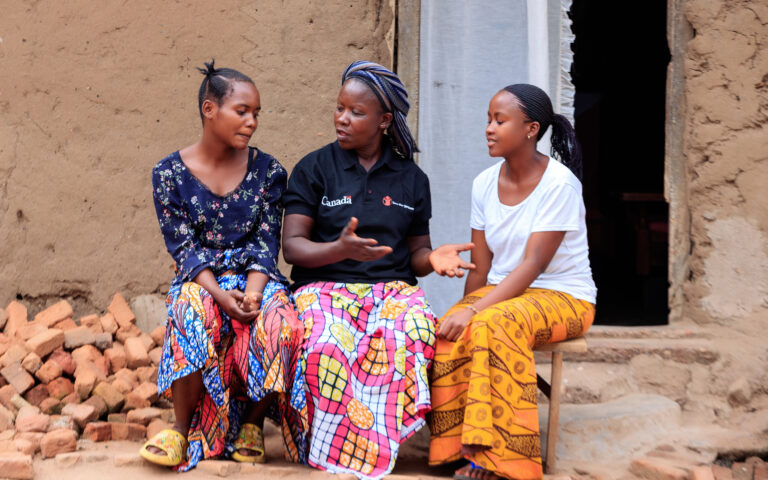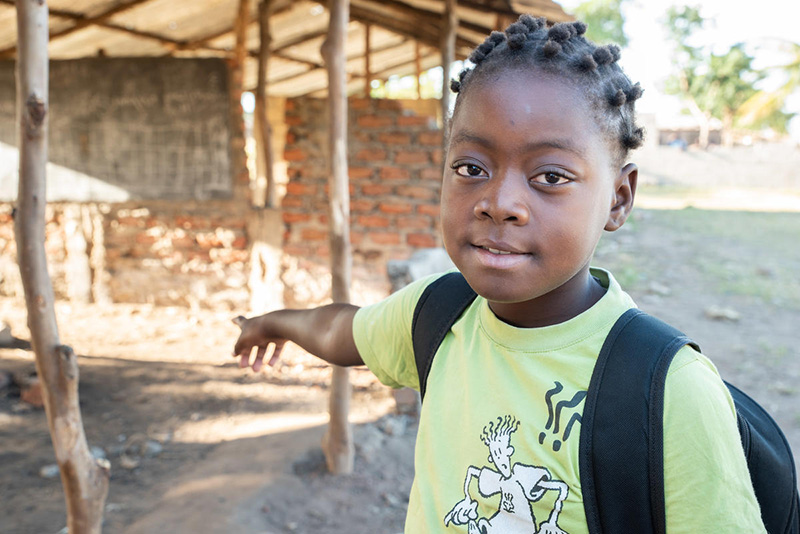Gender Equality is every child’s right
Gender equality is a fundamental human right. In fact, it is so fundamental that it appears in the second Article of the Convention on the Rights of the Child, which establishes gender as a protected characteristic, no different than race, religion and disability.
Gender equality not only provides children with equal opportunities to education, health, protection —but also the freedom of choice.
Every year on the fourth week of September, Canada celebrates Gender Equality Week. We seek to recognize—and raise awareness of—the contributions that women and gender diverse communities make to the world’s growth and development.
In advance of this year’s Gender Equality Week, learn more about some of our programs around the world that support increased gender equality for girls, women and their communities.
FOUNDATIONS—Mali, Niger and Sierra Leone

The FOUNDATIONS consortium, funded by Global Affairs Canada and in partnership with Sick Kids, Equipop, International Rescue Committee and the Overseas Development Institute, aims to strengthen adolescent girls’ empowerment regarding their sexual and reproductive health and rights in three countries—Mali, Niger and Sierra Leone.
In collaboration with our partners, Save the Children puts this approach into practice by engaging communities and adolescent girls and boys in conversations about gender, health, and sexuality. We are also training and supporting health providers in inclusive and accessible sexual and reproductive health and rights services; and empowering women and girls’ rights organizations to advocate for sexual and reproductive health policies and legal frameworks.
IMAGINE—Mali

In Mali, nearly half of all girls living in the country cannot read and do not have consistent access to education. The IMproving Adolescent Girls Inclusive Education (IMAGINE) project began in January 2020—with the goal of improving access to inclusive, quality, gender-responsive education for 90,000 conflict-affected girls in the Mopti and Ségou regions, and an emphasis on the unique needs of girls living in conflict-affected areas.
With support from Global Affairs Canada and working with local and international partners, Save the Children is improving girls’ access to education by working to make schools safer, with more gender-inclusive spaces, and engaging communities to discuss the importance of girls’ education. We also work with girls themselves to provide training on key life skills, like knowledge of their rights and gender equality, understanding of their own bodies and health, and other essential skills like communication and leadership.
Ni Someshe!—Democratic Republic of the Congo

The eastern part of the Democratic Republic of the Congo (DRC) has been plagued by conflict for over 20 years—leading to incredibly high rates of displacement and poverty, which further impacts girls and their right to education.
With funding from Global Affairs Canada, Save the Children implemented the Ni Someshe! project to provide children in eastern DRC with support to access education. This included training teachers on how to promote a safe and inclusive learning environment; and reducing barriers to education by providing school supplies and menstrual hygiene management supplies. Additionally, we provide employment support for young women who are survivors of sexual and gender-based violence to start their own businesses and promote equal rights for girls and boys through community sensitization.
Read more about the Ni Someshe! project.
She Belongs in School—Mozambique

According to USAID, only 11% of women in Mozambique have completed their secondary education. To help combat this, Save the Children launched She Belongs in School (SBIS) in 2021.
With funding from Global Affairs Canada, SBIS works with adolescent girls aged 10-19, supporting them to access their right to quality, gender-responsive education. We are also working to build foundational learning outcomes (literacy, numeracy, and life skills) that can help girls grow into powerful advocates for their own rights. SBIS helps connect girls and boys in the community to the Children’s Parliaments structure, a mechanism where youth can express their needs and hold government accountable.
Another key aspect of SBIS is the mobilization of Gender Equality Champions in the community. These Champions connect and engage with fellow community members to promote messages around girls’ right to education, and to challenge discriminatory and harmful gender norms that hinder girls from attending school and realizing their rights.
Recognizing and advancing gender equality is not just advancing the rights and wellbeing of individual women and girls, but also ensuring that their families and communities understand the benefits and importance of gender equality to fulfilling child rights.
While FOUNDATIONS, IMAGINE, Ni Someshe! and She Belongs in School are just some of the projects Save the Children is supporting around the world to help advance gender equality—we believe that all children should have equal opportunity to exercise their rights and realize their full potential.


